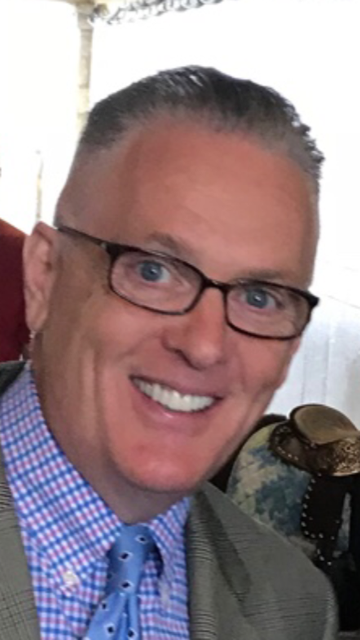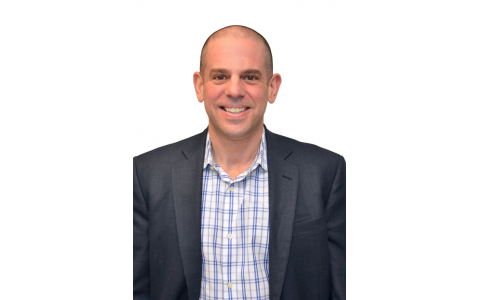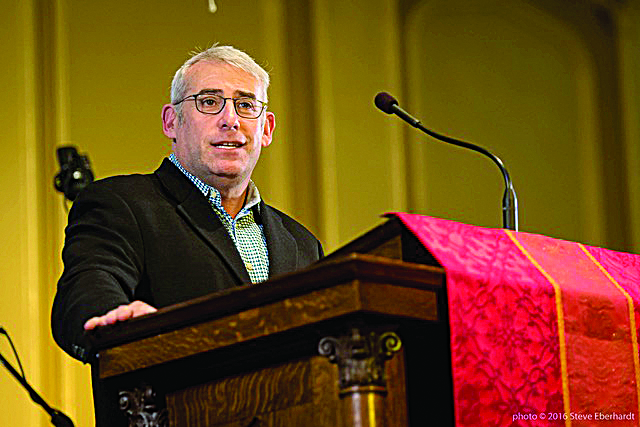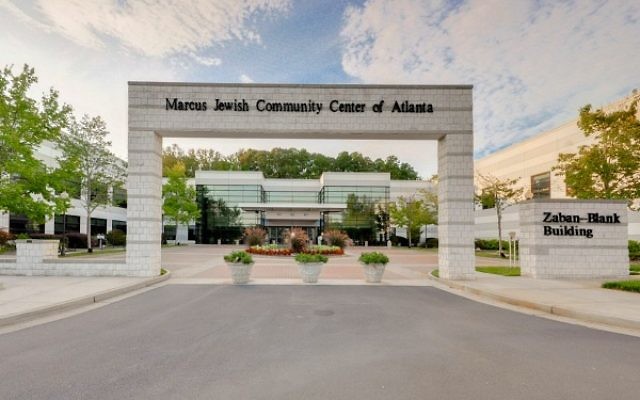Jewish Atlanta Ups Security After Pittsburgh
Tree of Life shooting in Pittsburgh causes synagogues and Jewish institutions to review and reconsider security measures.
Dave Schechter is a veteran journalist whose career includes writing and producing reports from Israel and elsewhere in the Middle East.
The question was put to Scott Allen, executive director at Congregation Or Hadash, who has served in the same capacity in other cities:
Post-Pittsburgh, do we need to live like Israelis, who encounter a far greater security presence as they go about their daily lives?
“I would hope not, but certainly the events in Pittsburgh on Saturday are a wake-up call,” especially for those who think, “I can’t afford it; it’s never going to happen to me,” Allen said.
“You can come up with all the excuses you want in the world – until it happens. The people in Squirrel Hill may have thought it wouldn’t happen there – until it happens there,” he said.
Security is money spent preparing for the day you hope never comes.
Until it does.
“Congregations all over the country have been engaged in discussions internally and with various first responders at the state, local and national levels ever since the news about Pittsburgh hit the wires,” Allen said.

“I really don’t want to divulge security protocols. We’ve got good security measures in place that have been established for some time. Our biggest thing is making sure people are aware of that, understanding that action plans are live documents, that they change daily based upon situations that occur, like this weekend in Pittsburgh,” said Cathal Lucy, the 25-year U.S. Secret Service veteran who is the director of Community- Wide Security for the
Jewish Federation of Greater Atlanta.
Lucy advocates that Jewish institutions hire off-duty police or professional security services to be present whenever their buildings are open and stresses the importance of developing a good working relationship with local police.
No matter how many ways the question is asked, administrators at several congregations contacted by the Atlanta Jewish Times declined to discuss either their current security programs or assets they might bolster in the wake of the Tree of Life synagogue shootings.
Neither would Jared Powers, chief executive officer of the Marcus JCC, which will be filled with members and nonmembers alike during its annual book festival, which runs through Nov. 18.

“The safety of our members, guests and staff is always our top priority. To that end, we cannot comment on our security measures,” was all Powers would say.
Many of the security enhancements made at Jewish institutions nationwide since 2005 have been paid for by taxpayers through the Nonprofit Security Grant Program administered by the federal Department of Homeland Security.
Jewish institutions have claimed the vast majority of more than $200 million distributed under the program, an estimated 90 percent by some reports.
Total funding in fiscal year 2018 was $50 million for institutions in major urban areas and $10 million for areas outside the urban centers. The maximum grant available to a single institution was $150,000.
Lucy said that Atlanta area institutions had been awarded about $2 million in grants the past two to three years.
This year, the Marcus JCC and Temple Sinai were recipients. Neither would reveal how much it received.
The grant will allow Temple Sinai “to make enhancements we’ve been waiting to,” said Shelly Dresdner, the associate executive director of Temple Sinai. “We are doing hardware updates in the building that will enhance our internal communications abilities. We couldn’t have done it without those funds.”
The grants pay for hardware such as lights, cameras, alarms and communication equipment, as opposed to the hiring of off-duty police or private security, or for training programs.

One piece of security advice given to synagogues is to “look for people who don’t fit in,” which Amy Robertson, executive director at Congregation Bet Haverim, said is problematic for that multi-racial, multi-ethnic congregation.
“We are doubly vulnerable,” as a Jewish institution with historic ties to the LGBT community. “I think one of our challenges is that we intentionally draw a very diverse group of people. I tell the police officer (outside during services) that there’s really no way of looking at someone and ascertaining if they belong here by how they look.”
Earlier in the day, before the AJT inquired, Allen had participated in a conference call with his colleagues around town.
Asked about the mood of that call, Allen said, “We’re on the front lines of making sure our congregants are safe, so it was very professional, very business-like.”
As for revealing the specifics of her congregation’s security apparatus, Dresdner spoke for her peers. “It’s important that to be effective, it needs to be concealed. If everyone were to go out and talk about their security efforts and what they’re doing, that would be, in and of itself, insecure.”




comments